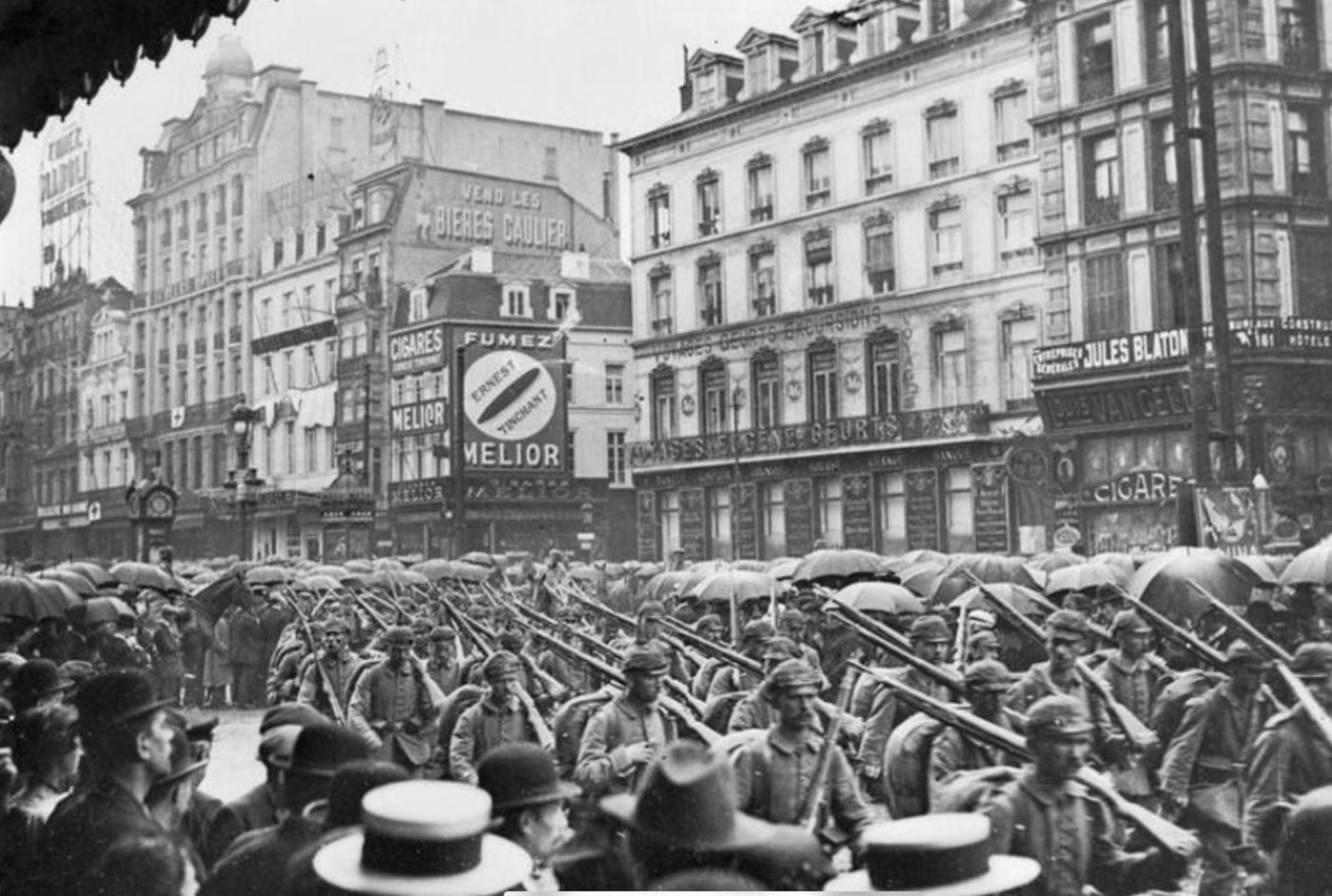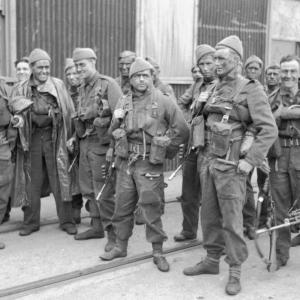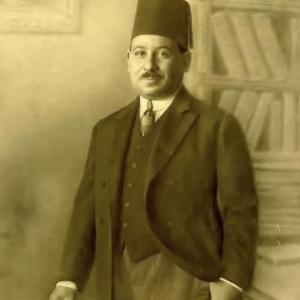
On this day in military history…
The declaration of war by Britain against Germany on August 4, 1914, was the result of a rapidly escalating diplomatic crisis that unfolded in the summer of 1914. The underlying causes had been building for decades, rooted in militarism, imperial rivalries, and entangled alliances. However, the immediate trigger was the assassination of Archduke Franz Ferdinand of Austria-Hungary on June 28, 1914, in Sarajevo by a Bosnian Serb nationalist. This event set off a chain reaction across Europe.
Austria-Hungary, with Germany's support, issued an ultimatum to Serbia, which was partially rejected. Austria-Hungary then declared war on Serbia on July 28, 1914. This localized conflict quickly spiraled into a continental one due to the rigid system of alliances. Russia, seeing itself as the protector of Slavic nations and allied with Serbia, began mobilizing its army. Germany, allied with Austria-Hungary through the Dual Alliance, saw Russian mobilization as a direct threat.
On August 1, 1914, Germany declared war on Russia. France, allied with Russia through the Franco-Russian Alliance, was preparing for the likelihood of war. Germany, anticipating a two-front war against France and Russia, decided to act swiftly using the Schlieffen Plan, which called for a rapid invasion of France through Belgium. This was a key moment in drawing Britain into the conflict.
On August 2, 1914, Germany sent an ultimatum to Belgium, demanding free passage for its troops through Belgian territory. The German plan depended on moving through Belgium to quickly defeat France before turning to fight Russia. Belgium, however, had long-standing treaties guaranteeing its neutrality, including one signed in 1839 — the Treaty of London — which was agreed upon by major European powers, including Britain.
King Albert I of Belgium and his government, valuing their sovereignty and neutrality, firmly rejected Germany’s demands. Despite this, on the morning of August 4, 1914, German forces began to march into Belgium, starting with the city of Liège. However, preparations for this invasion began on August 2nd. Germany had already occupied the city of Luxembourg on August 2, and by August 3, German troops were massing along the Belgian border. On that same day, Germany declared war on France.
The German Chancellor, Theobald von Bethmann Hollweg, tried to justify the move by downplaying the violation of Belgian neutrality. He called the 1839 Treaty a mere "scrap of paper," which shocked British diplomats and officials. Britain had no formal alliance with France at this point, but the violation of Belgian neutrality, and the potential threat to the English Channel and the balance of power in Europe, gave Britain a strong moral and strategic reason to intervene.
As news of the German ultimatum to Belgium reached London on August 2nd and 3rd, the British government, under Prime Minister Herbert Asquith, faced enormous pressure to act. The British Foreign Secretary, Sir Edward Grey, played a crucial role in the lead-up to war. He had tried to mediate between the great powers during the July Crisis, but by early August, it was clear that diplomacy had failed.
On August 3, after Germany declared war on France and prepared to march into Belgium, Sir Edward Grey addressed the House of Commons. He argued that Britain could not stand by while a neutral country was attacked. He stressed the importance of upholding international law and Britain’s obligation under the Treaty of London. Grey's speech was influential and marked a turning point in swaying public and political opinion in favor of war.
That evening, Grey famously said, “The lamps are going out all over Europe; we shall not see them lit again in our lifetime.” It captured the somber mood of the moment. Britain sent an ultimatum to Germany, demanding that it respect Belgian neutrality and withdraw its forces. Germany ignored the demand.
As a result, at 11 PM on August 4, 1914, Britain officially declared war on Germany. Crowds gathered outside Buckingham Palace and Whitehall, many cheering as King George V appeared on the balcony. While there was some division among political leaders, the invasion of Belgium unified many who had previously been hesitant about entering a European war.
The German invasion of Belgium was not only a military move but a diplomatic blunder that solidified British resolve. Britain’s declaration of war marked the beginning of its involvement in World War I, a conflict that would last four years and claim millions of lives. The events of August 2nd, particularly Germany’s aggressive action and blatant disregard for international treaties, were instrumental in bringing Britain into the war.










